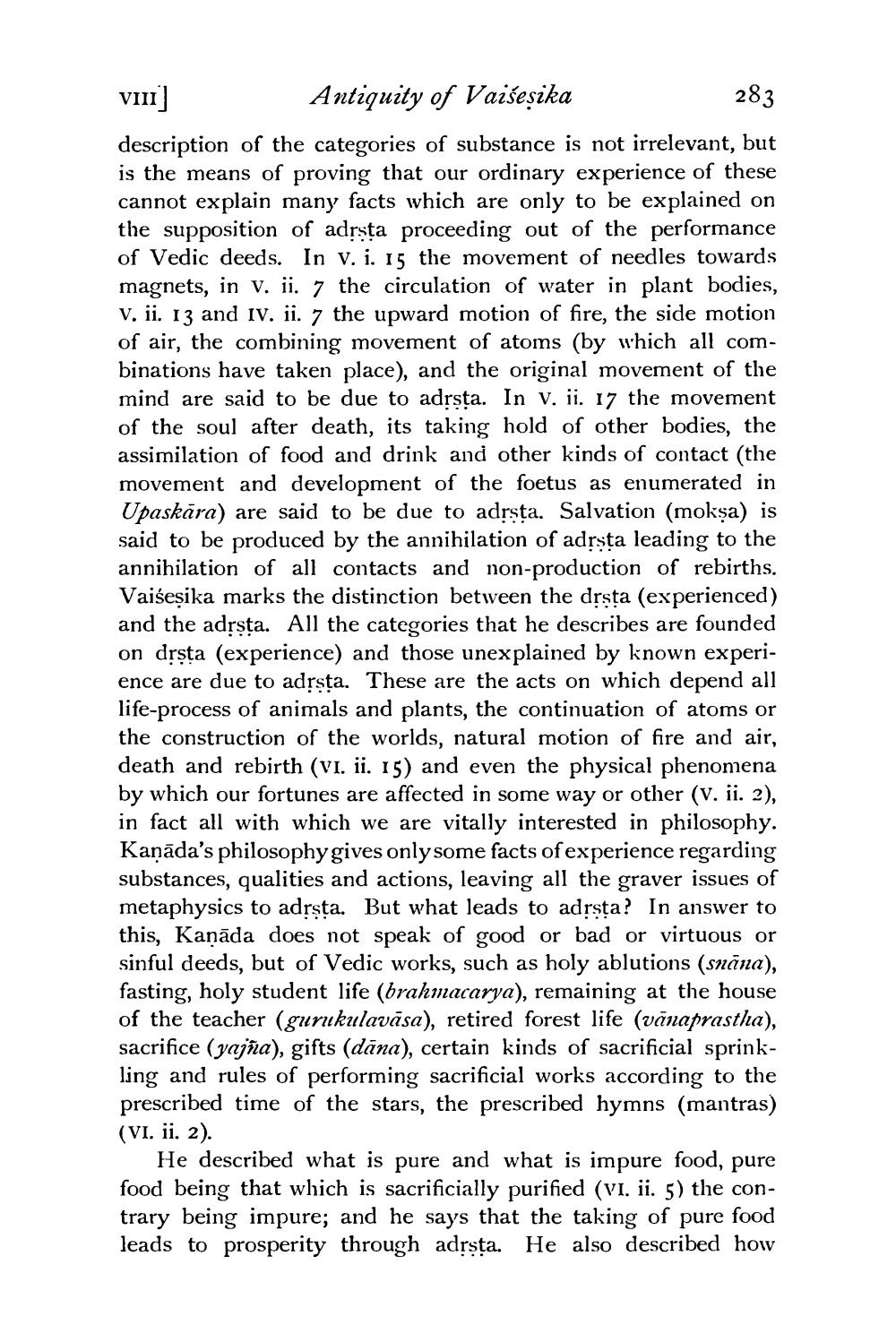________________
vill] Antiquity of Vaišesika
283 description of the categories of substance is not irrelevant, but is the means of proving that our ordinary experience of these cannot explain many facts which are only to be explained on the supposition of adrsta proceeding out of the performance of Vedic deeds. In v. i. 15 the movement of needles towards magnets, in v. ii. 7 the circulation of water in plant bodies, v. ii. 13 and iv. ii. 7 the upward motion of fire, the side motion of air, the combining movement of atoms (by which all combinations have taken place), and the original movement of the mind are said to be due to adrsta. In v. ii. 17 the movement of the soul after death, its taking hold of other bodies, the assimilation of food and drink and other kinds of contact (the movement and development of the foetus as enumerated in Upaskāra) are said to be due to adrsta. Salvation (mokşa) is said to be produced by the annihilation of adrsta leading to the annihilation of all contacts and non-production of rebirths. Vaiseșika marks the distinction between the drsta (experienced) and the adşsta. All the categories that he describes are founded on dụsta (experience) and those unexplained by known experience are due to adrsta. These are the acts on which depend all life-process of animals and plants, the continuation of atoms or the construction of the worlds, natural motion of fire and air, death and rebirth (VI. ii. 15) and even the physical phenomena by which our fortunes are affected in some way or other (v. ii. 2), in fact all with which we are vitally interested in philosophy. Kanāda's philosophy gives only some facts of experience regarding substances, qualities and actions, leaving all the graver issues of metaphysics to adrsta. But what leads to adrsta? In answer to this, Kanāda does not speak of good or bad or virtuous or sinful deeds, but of Vedic works, such as holy ablutions (snāna), fasting, holy student life (brahmacarya), remaining at the house of the teacher (gurukulavāsa), retired forest life (vānaprastha), sacrifice (yajña), gifts (dāna), certain kinds of sacrificial sprinkling and rules of performing sacrificial works according to the prescribed time of the stars, the prescribed hymns (mantras) (VI. ii. 2).
He described what is pure and what is impure food, pure food being that which is sacrificially purified (v1. ii. 5) the contrary being impure; and he says that the taking of pure food leads to prosperity through adrsta. He also described how




